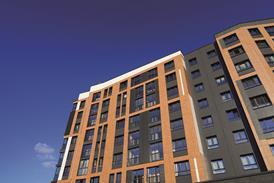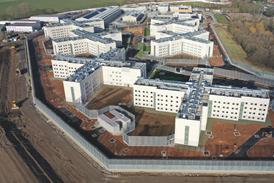In the first of a series of features on alternative dispute resolution, Ken Tracey takes a look at mediation.
In the first of a series of features on alternative dispute resolution, Ken Tracey takes a look at mediation.
Negotiation is the most efficient method of resolving disputes, but parties often become entrenched, with each sticking to a position, blind to the possibilities available to help them reach settlement.
Mediation is a form of negotiation, but is carried out with the assistance of a neutral third party, the mediator. The involvement of the mediator makes negotiations more effective and, in the majority of cases, agreement is reached within a single day.
Unlike arbitrators and adjudicators, facilitative mediators do not sit in judgement; they will not tell the parties who is right and who is wrong and will not impose a decision on them. The aim is to reach a negotiated agreement based on what the parties themselves are prepared to settle for without reference to their rights in contract or law.
The negotiated settlement can, therefore, be flexible. In the construction industry, payment is the prime source of dispute, but a settlement at mediation may include other needs. In addition to money, a party may accept a further contract as part of the settlement agreement or even the loan of labour, plant or free materials and, after a bitter dispute, some parties need an apology in order to reach settlement.
Settlement is assisted by the fact that the whole mediation process is confidential and without prejudice. Parties can make concessions and disclose matters previously unknown to the other side, confident that, in the event that an agreement is not reached, these matters will not be used against them in any subsequent ADR procedure.
Any offers or suggestions made by the parties or the mediator may be explored openly without fear of commitment. Mediation is non-binding until a settlement agreement is drafted and signed at the end of the process.
The settlement agreement should cover all matters agreed and should contain the precise method and date for the payment of any monies and the date for the execution of any actions agreed. A signed agreement is an enforceable contract between the parties.
Cost
It is a cost-effective process when compared to the other forms of ADR and settlement through the courts. The cost of mediation is limited to the costs of the mediator and a venue in which to hold the mediation. A party’s offices may be used by agreement. The mediator’s costs could be in the region of £1000, increasing in proportion to the financial size of the dispute and duration of the process.
The parties do not require legal representation. However, if legal action had already commenced and a court had referred the case to mediation, solicitors would be involved and would be permitted to attend the mediation.
The comparable cost of a fairly modest dispute referred to adjudication could be in the region of £16 000, plus adjudicator’s fees of £12 000-£15 000 and, at arbitration or through the courts, £60 500. (Figures courtesy of Gullands Solicitors, Maidstone.)
Starting mediation
Generally, there is a lot to be gained and nothing to be lost by trying mediation.
Parties attend on a voluntary basis, so it helps if a professional relationship is maintained throughout the early negotiations, as the other party is more likely to be persuaded to mediate. Those attending should have the desire and authority to settle.
For a fee, a mediator may be appointed through one of the professional bodies, such as CIArb or RICS. Members may use the ECA Mediation Service, which offers preferential rates. (Tel: 020 7313 4815)
On appointment, the mediator will contact each party to obtain details of the dispute and to arrange an appointment for the mediation. Multi-party disputes can also be dealt with. They will prepare a short formal ‘agreement to mediate’ for the parties to sign before commencement. This will include the agreement to confidentiality, which will apply unless it becomes necessary for a settlement agreement to be enforced through the courts. In this case, disclosure will be necessary.
Why it works
Around 80% of disputes referred to mediation result in a satisfactory settlement. Some of the remainder are settled in the days following, when participants have had time to consider the suggestions made.
The success of the process is due in part to the act of moving the parties’ focus from contractual and legal argument to commercial considerations. It may be more financially sound for an organisation to accept a lower figure in the knowledge that they will be paid quickly and not have the burden of legal fees. Barriers are broken down by discussion in the presence of the third party neutral and often the parties will continue their business relationships – an advantage that seldom follows a legal battle.
Ken Tracey works for the ECA commercial, contracts and legal department and is a Chartered Institute of Arbitrators accredited mediator.
The Negotiator
- Quick – agreement is usually reached within one day
- Inexpensive – costs could be in the region of £1000
- Private – business relationships may be preserved
- High success rate – in the region of 80%
- Parties introduce their own case
- Parties have control over the outcome
Source
Electrical and Mechanical Contractor



















